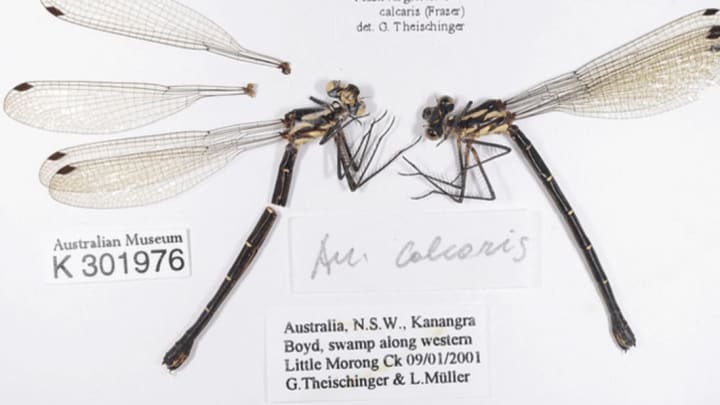You shouldn’t believe everything you read—even if it’s a label inside a natural history museum. A new study [PDF] from researchers at Oxford University and Royal Botanic Garden Edinburgh suggests that up to 50 percent of the specimens in their collections are labeled incorrectly.
When samples are sent to a natural history museum, they often arrive without a name. Even for biology experts, differentiating between certain insect or plant species can turn into a guessing game. The team of researchers found that samples taken from the same plant were often given different names after being distributed around the world. They also found that our rapidly evolving knowledge of the natural world leaves many museums with labels that are outdated or redundant. Zoe Goodwin, one of the researchers behind the study, said in a press release: "We think a conservative estimate is that up to half of the world’s natural history specimens could be incorrectly named."
Thanks to modern technology, a few inaccurate names can easily snowball out of proportion. Large online databases of the world’s natural history specimens, like the Global Biodiversity Information Facility database, are capable of quickly spreading misinformation on an international scale. As you can imagine, this is bad news for biologists. Dr. Robert Scotland from the Department of Plant Science at Oxford University explained in the same press release: “Many areas in the biological sciences, including academic studies of evolution and applied conservation ... are underpinned by accurate naming."
The easiest way for biologists to combat this problem is with more time and money for accurate research—two things they don’t have a lot of. Fortunately, the scientists behind the paper have been developing a new type of research exercise they call the foundation monograph. According to their reports, the model can be used to revise records for an entire genus in a period of months, rather than years. It’s too soon to say whether this will enable serious change on a global scale. Until then, remember to take what you read in museums with a grain of salt.
[h/t: Gizmodo]
